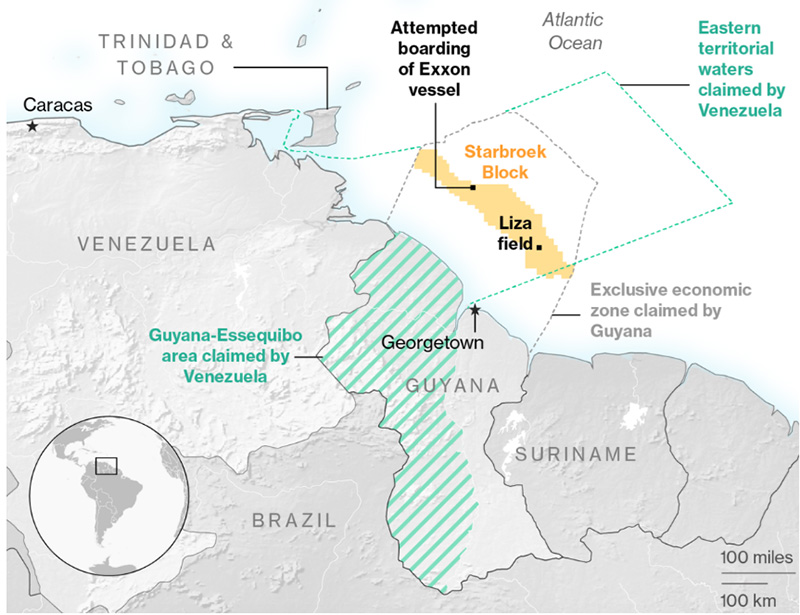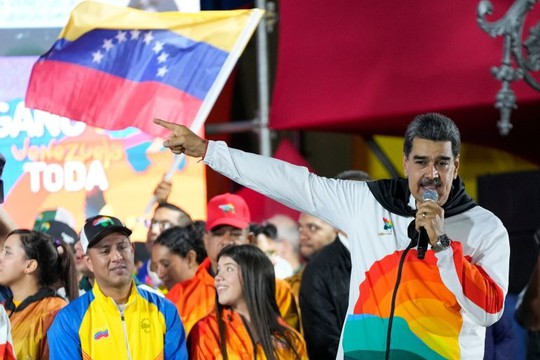President Nicolas Maduro is authorising the extraction of crude oil in the disputed region of Essequibo.
Photo: AP
Tension is growing between Venezuela and Guyana, as Caracas said it is preparing legislation to claim Guyana’s Essequibo region as its own, Al Jazeera informs. Conflict over oil-rich territory escalates as Venezuela prepares to declare it a province and orders exploration effort.
Venezuela’s President Nicolas Maduro on Tuesday called for a bill to create a “Guyana Esequiba” province and ordered Venezuelan companies to prepare to enter the territory to explore for fossil fuels and minerals “immediately”. The move escalated tensions over the disputed oil-rich territory.
Maduro said he will proceed “to grant operating licences for the exploration and exploitation of oil, gas and mines in the entire area of our Essequibo”. He demanded that Guyanese companies working in the territory leave within three months.
Guyanese President Irfaan Ali rejected the measures as a “direct threat” against his country and threatened to take the case to the United Nations Security Council (UNSC).
Venezuela has for decades laid claim to Essequibo, claiming that the Essequibo River to the region’s east forms a natural border and has historically been recognised as such.
However, Guyana, of which Essequibo makes up more than two-thirds and hosts 125,000 of its 800,000 citizens, has administered the territory since the frontiers were determined by an arbitration panel in 1899.
Venezuela’s latest efforts to overtake the territory piqued in 2015 when ExxonMobil announced it had found oil in commercial quantities off the Essequibo coast.
Maduro’s statements follow Sunday’s referendum to annex the territory, which was called after Georgetown started auctioning off oil blocks in Essequibo in August. Caracas claims that 95 percent of Venezuelans voted to annex the territory.

The referendum result, announced on Monday, came after the International Court of Justice (ICJ) warned Venezuela against “taking any action” that could alter the status quo in the region.
However, Maduro proposed at Tuesday’s government meeting that a bill be sent to the National Assembly for the creation of a “Guyana Esequiba” province.
The Venezuelan leader also ordered the creation of local subsidiaries of his country’s public oil & gas companies and gave an ultimatum to companies working under concessions given by Guyana to withdraw their operations.
As Venezuela’s announcements ignore the ICJ decision, Guyana has warned that it would invoke Articles 41 and 42 of the UN Charter – which can authorise sanctions or military action with the UNSC should Venezuela “attempt” to enforce the referendum.
“Any action or any attempt to take any action pursuant to the referendum will necessitate a resort to the UN Security Council as an injured party,” Guyana’s Attorney General Anil Nandlall said.
“In terms of military, it (the UNSC) can authorise the use of armed forces by member states to assist in the enforcement” of ICJ orders, Nandlall said.
read more in our Telegram-channel https://t.me/The_International_Affairs

 10:33 07.12.2023 •
10:33 07.12.2023 •























